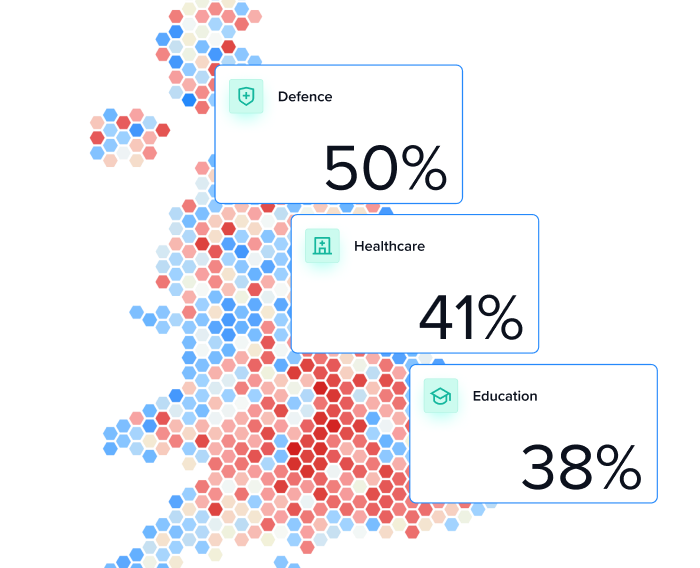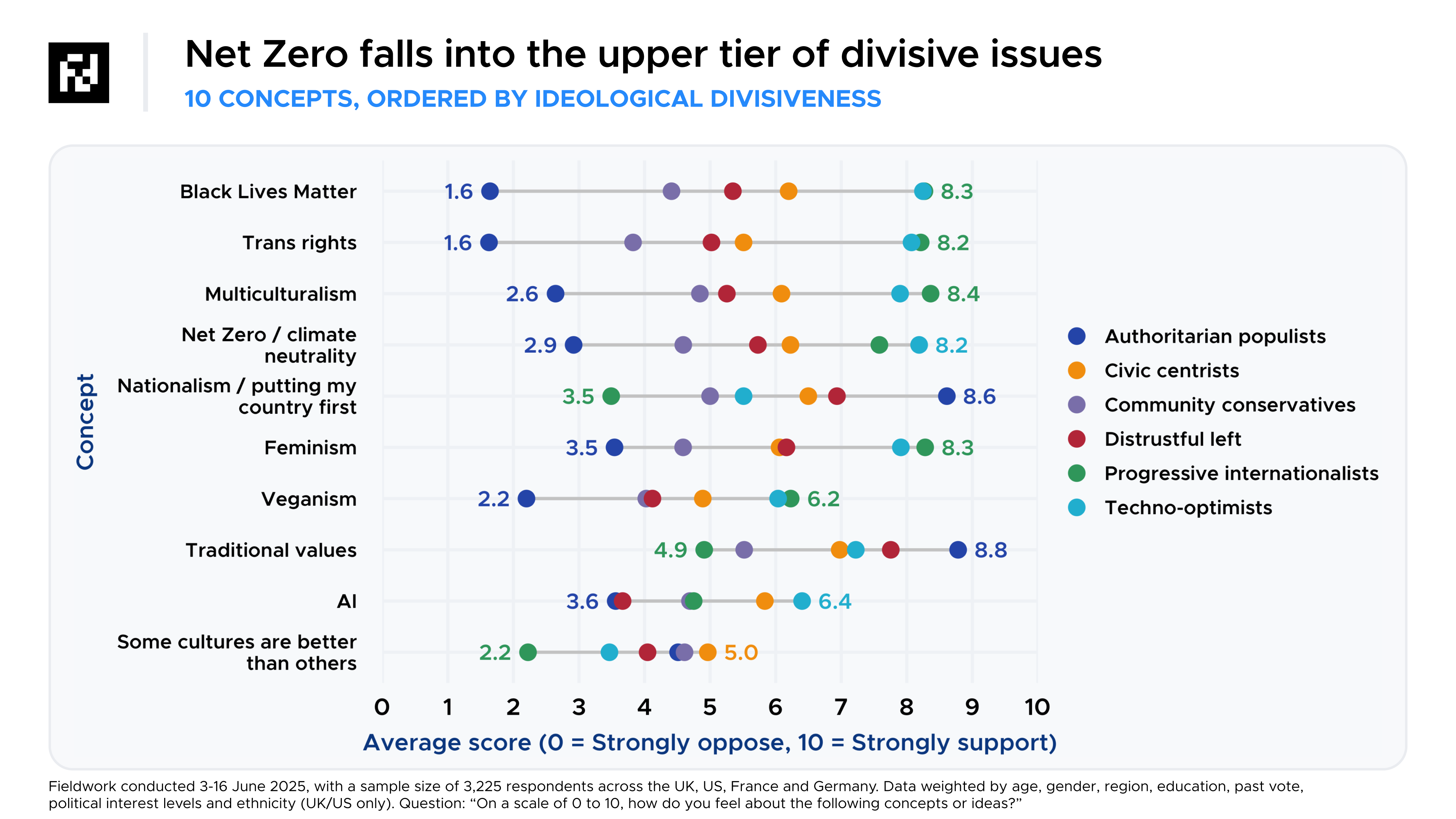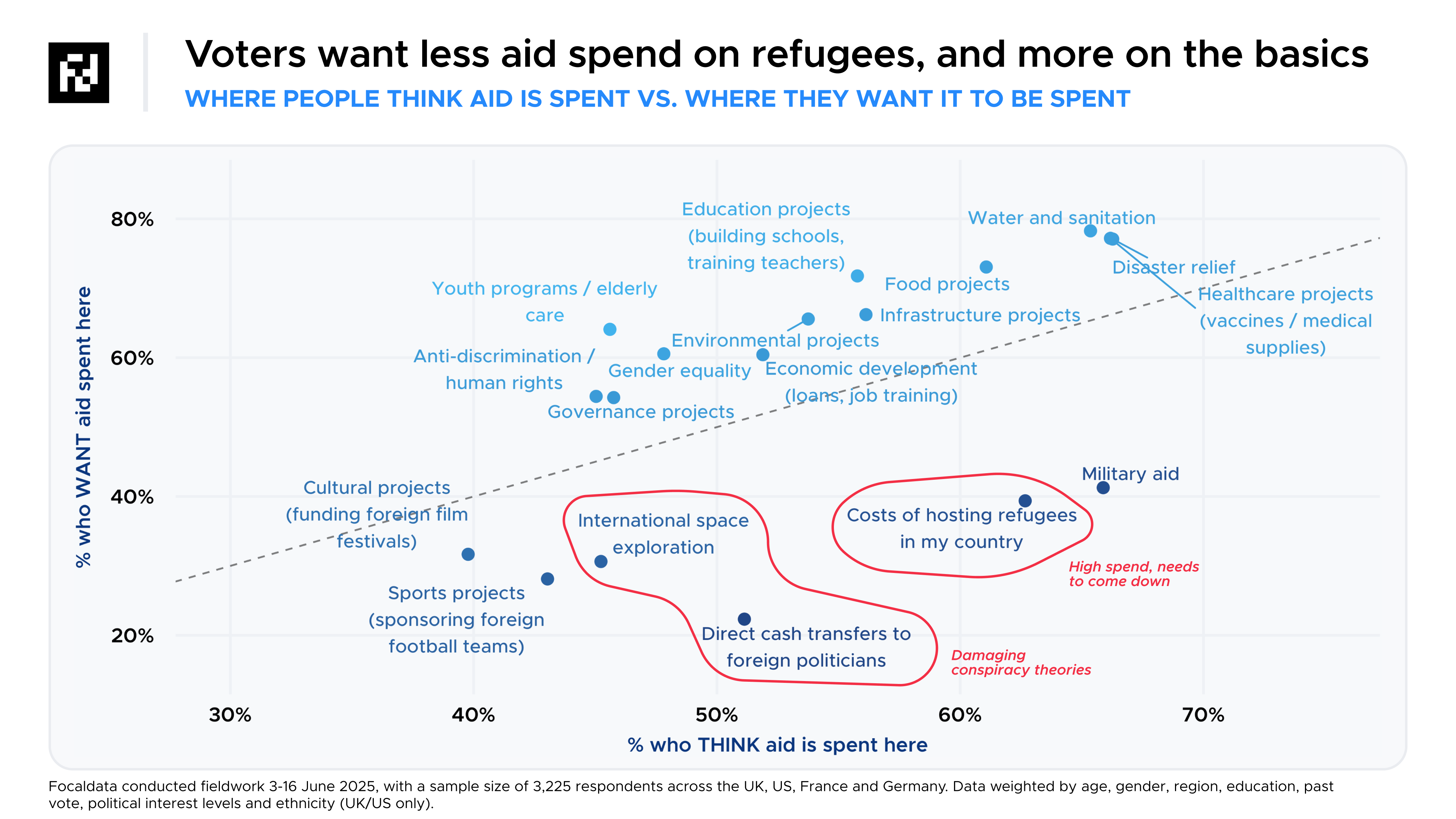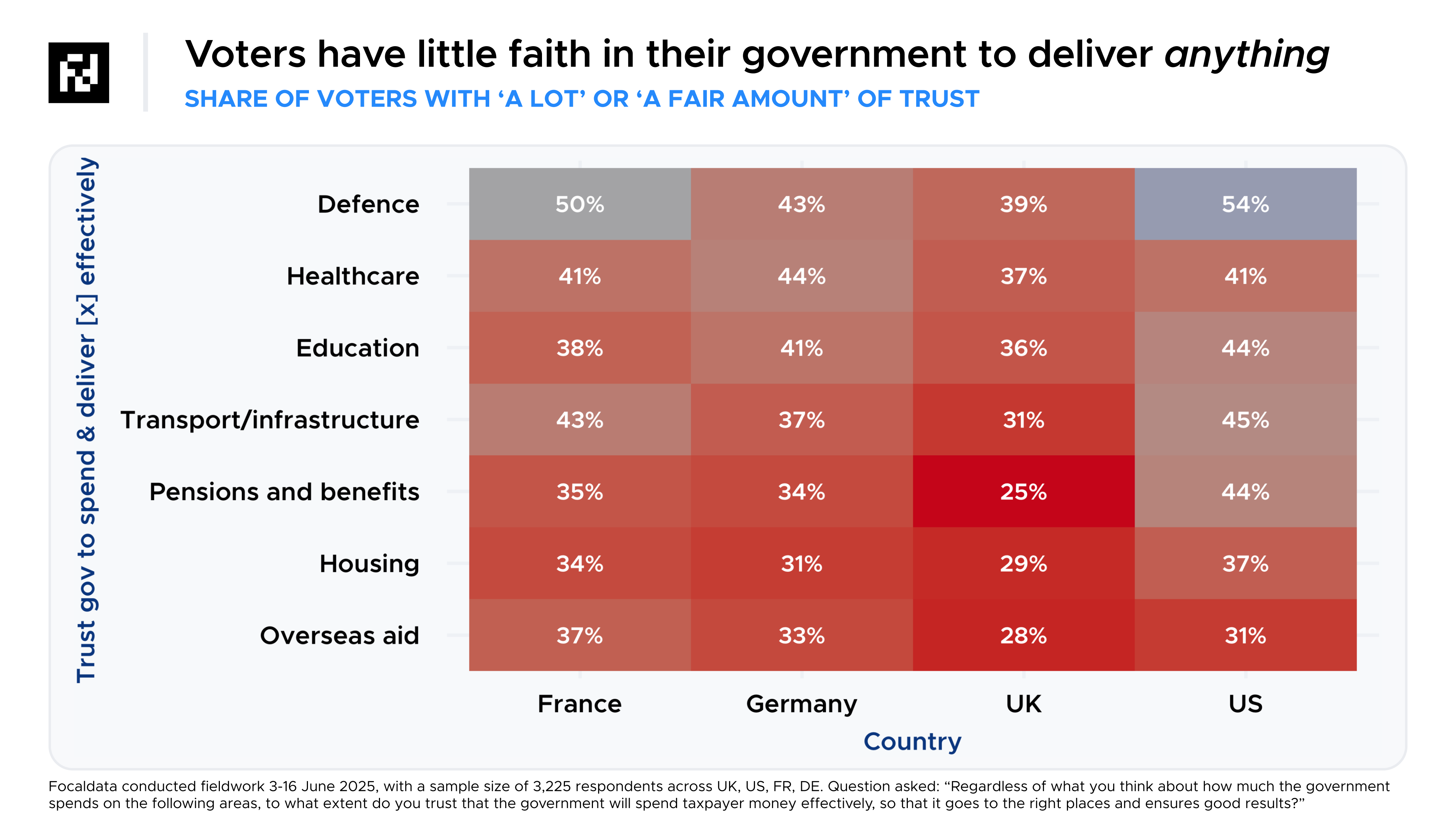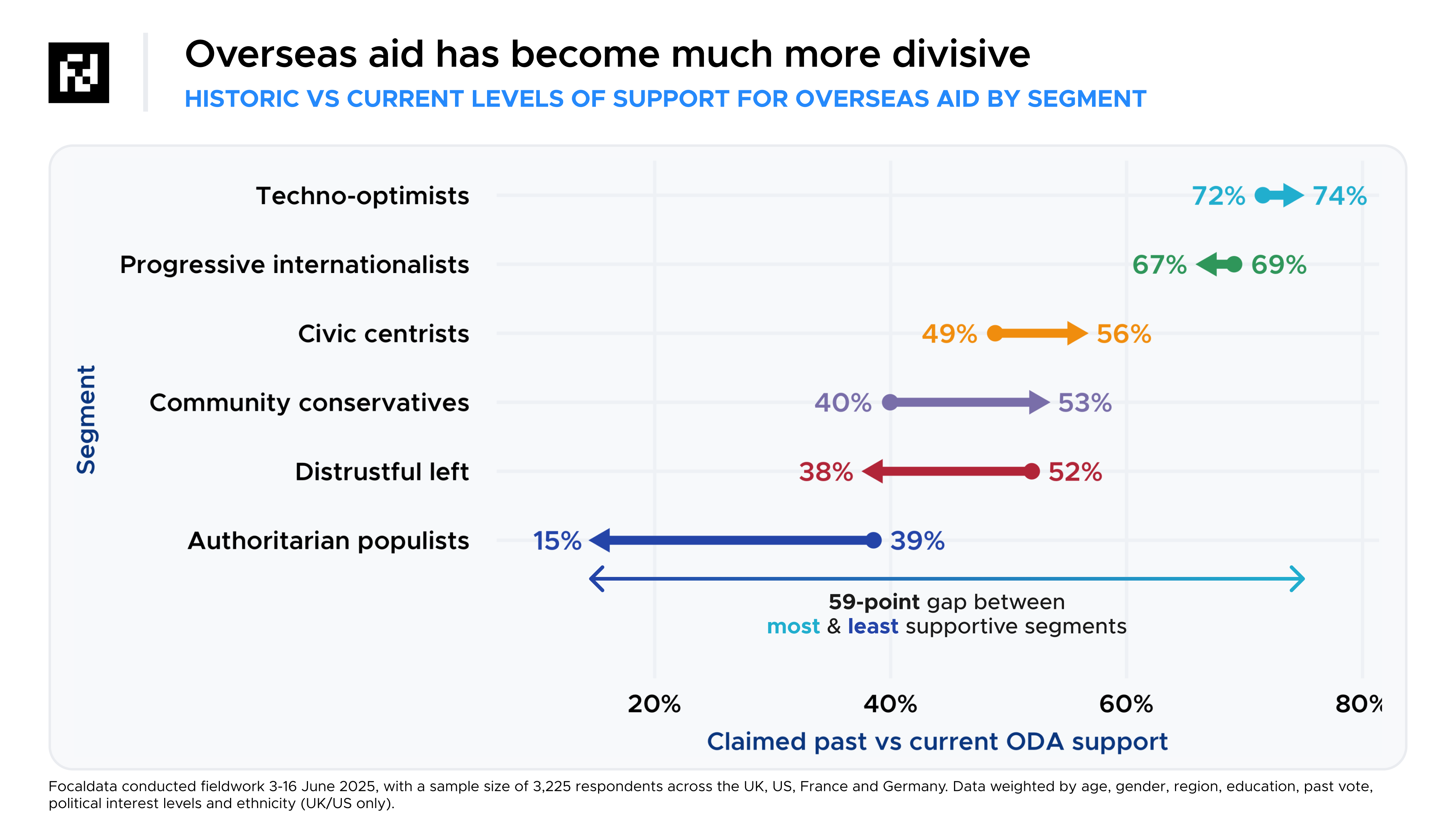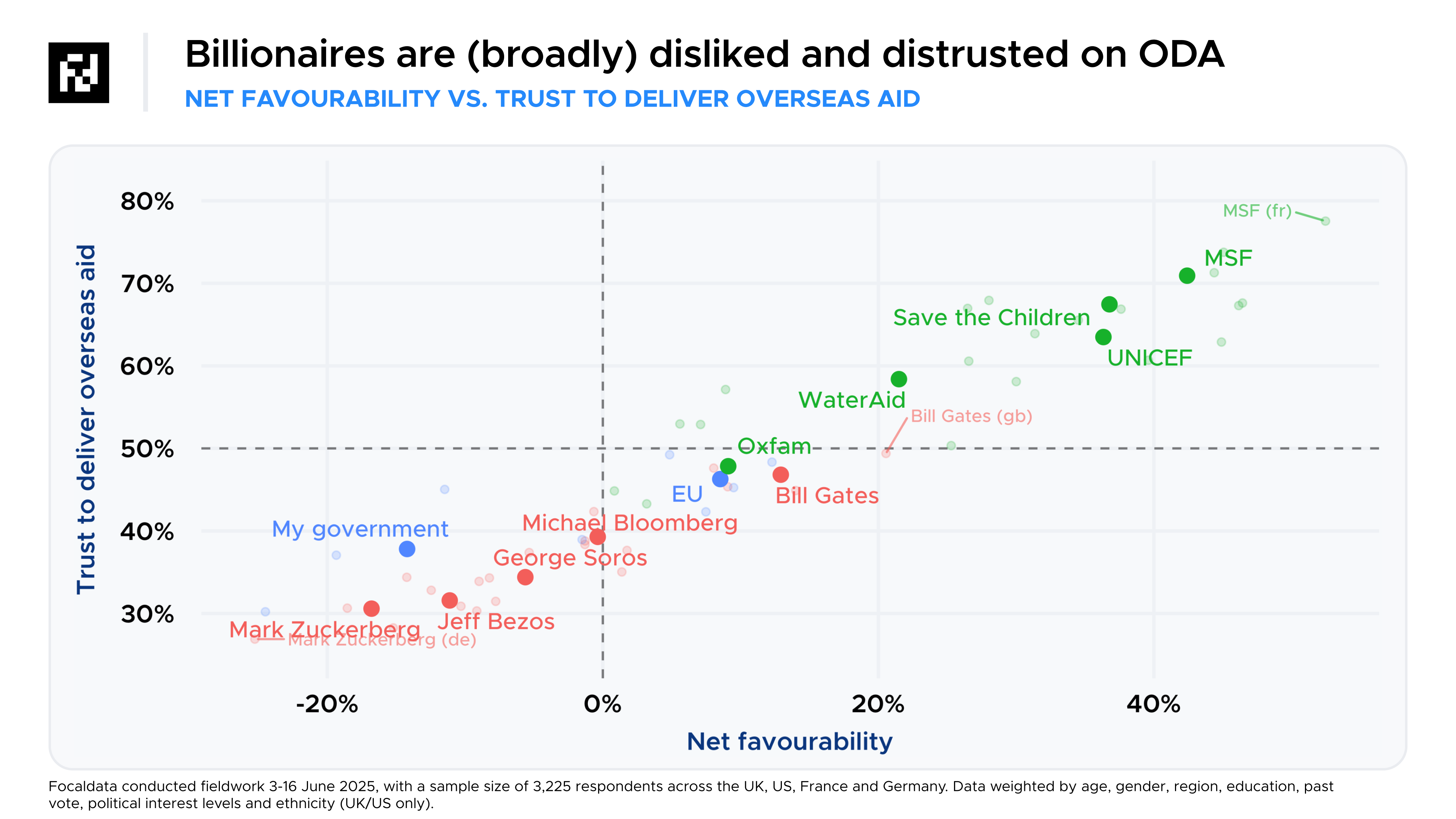Blog/Research
Foundations at Risk: A new white paper from Focaldata
We are delighted to announce the release of our latest white paper, Foundations at Risk: Why support for philanthropic ventures like overseas aid and climate action is crumbling across the West – and how to fix it.
The executive summary follows, but you download the full white paper at the download link below.
Executive summary
Support for overseas aid and action on climate change is at risk with both the public and governments of major Western economies. This year, governments on both sides of the Atlantic outlined sweeping cuts to their overseas aid commitments. The UK government confirmed plans to reduce Official Development Assistance (ODA) spend to 0.3% of gross national income by 2027, following on from the 2021 cuts under Boris Johnson’s premiership. In the United States, the second Trump administration has now dismantled the US Agency for International Development (USAID) and cancelled more than 80% of the agency’s programmes.
While the scale of these cuts is unprecedented, the decisions follow a direction of travel which has been clear for a long time. Our research suggests that these developments are not isolated shocks, but part of a broader pattern of changing public opinion, ideological shifts and political pressures. We have also identified evidence that action on climate change may be heading in the same direction as overseas aid.
Our findings indicate that both overseas aid and climate action sit on a bedrock of good will with broad public support in principle, but support is crumbling in practice due to several converging factors including zero-sum thinking, a growing distrust of elites and governments, political polarisation, and the increased covariance of divisive political issues.
This white paper outlines the challenges facing philanthropic ventures like ODA and climate action, examining how:
- Overseas aid and climate change have become more politically-contentious subjects, making consensus harder to achieve. Changes in voter coalitions have also reduced incentives for major political parties to appeal to aid/climate action supporters to win elections.
- Voters across the West have little faith in their governments to deliver generally, with aid taking a hit. Growing opposition to ‘benevolent billionaires’ is also impacting the aid sector.
- Shared truths have disappeared. The clear benefits of overseas aid have been downplayed, whereas other aspects seen as unjustified have been amplified and sensationalised.
We also note that the philanthropic sector is not merely a hostage to the shifting sands beneath them. Current external communications do not appear to be cutting through with the public. Through a case study on overseas aid, we have identified ways in which messaging and framing of the topic could mitigate some structural issues and begin to rebuild a firm base of support across countries and ideological segments. To regain support, ODA communications should re-stress the bottom of Maslow’s hierarchy of needs and focus on the basics – clean water and food, disaster relief, and disease treatment – rather than ‘higher level’ needs or academic debates about aid itself.
